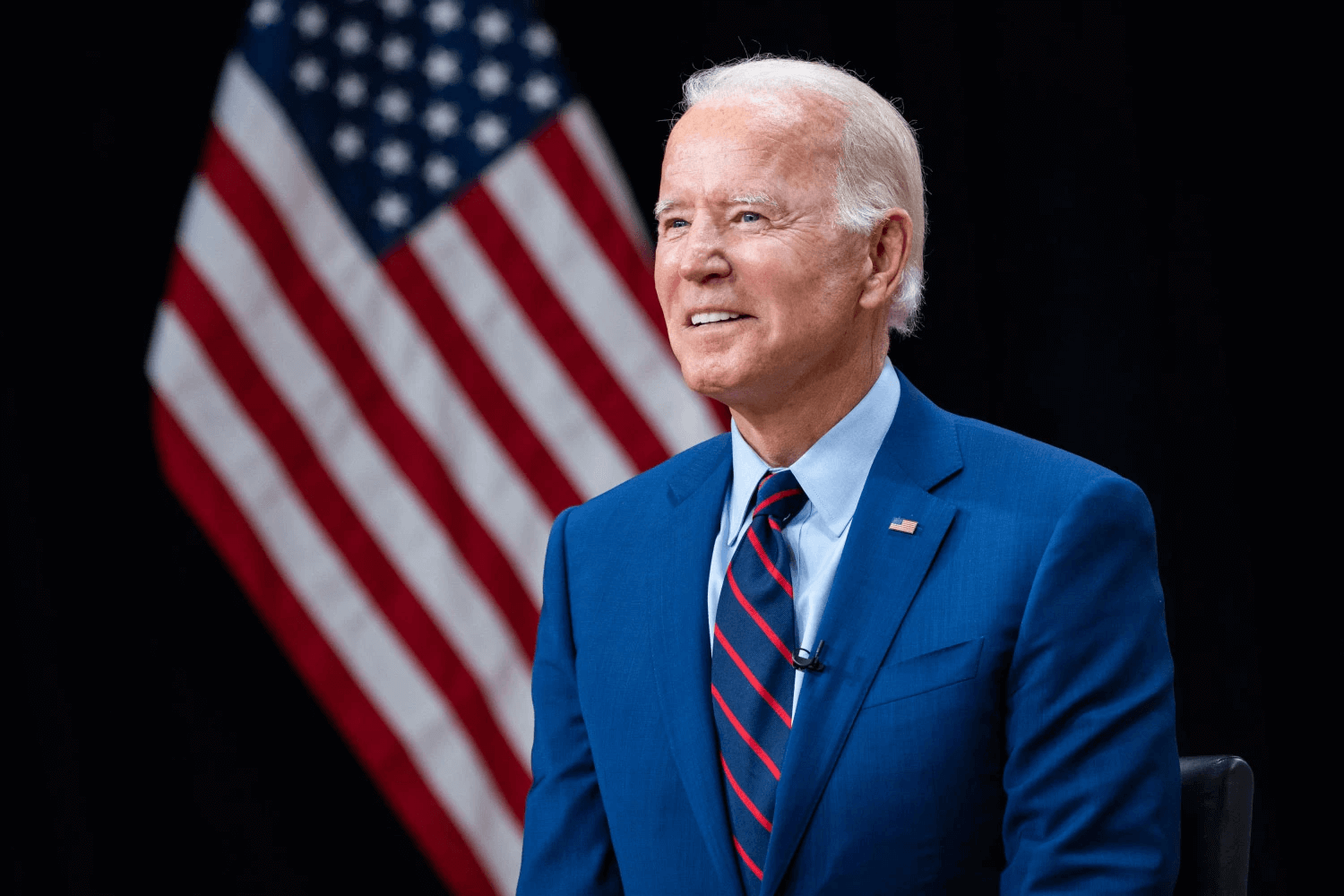U.S. President Joe Biden, on December 24, signed into law the country’s defense budget for Fiscal Year 2025, totaling about US$895.2 billion.
This ‘Act,’ technically known as the “Servicemember Quality of Life Improvement and National Defense Authorization Act (NDAA),” provides vital benefits for military personnel and their families and includes critical provisions to support America’s national defense, foreign affairs and homeland security.
Its provisions include a 14.5 percent pay raise for junior enlisted troops and a 4.5 percent increase for all other service members, along with funds to bolster the U.S. presence in the Indo-Pacific and build new warships, aircraft, and vehicles.
Experts say that the new law directs resources towards a more confrontational approach to China, including establishing a fund that could be used to send military resources to Taiwan in much the same way that the U.S. has backed Ukraine. It also invests in new military technologies, including artificial intelligence, and bolsters U.S. ammunition production.
Since this was the amount in the 2025 – budget proposals that his administration itself had submitted to Congress in March for consideration, the outgoing President should have been happy that the U.S. legislature approved his request (The US House of Representatives on December 11 and the Senate on December 18), and this despite the fact that the Republicans control the House.
But that does not appear to be the case. “While I am pleased to support the critical objectives of the Act, I note that certain provisions of the Act raise concerns,” President Biden pointed out.

Why is he unhappy? As pointed out, it could not be due to the budgetary outlays. After all, this year’s outlays are higher than the amount of US$886.3 billion that Biden had cleared in December 2023 for the country’s defense budget for the 2024 fiscal year.
In any case, these outlays invariably go up as the year progresses. All said, the NDAA authorizes Pentagon programs but does not fund them, for which Congress separately passes an appropriations bill. Since by the time these legislations will come in March, when the Republicans will be in the driver’s seat, there is every reason for the US$895 billion mark to be revised upwards.
Incidentally, the United States spends more on defense than the next nine countries combined – China, Russia, India, Saudi Arabia, UK, Germany, Ukraine, France and Japan.
Though China is regarded as America’s principal military rival these days, studies reveal that China’s military expenditure represents 59% of US military spending, and its equipment levels are only 42% of the US levels. The military gap between the two is all the more significant as China’s economic growth has slowed in recent years.
It seems that Biden’s unhappiness over the Bill passed by the two houses of Congress, which he signed into law, is due to two principal reasons.
One is the discretionary power of the President (executive) that will be diluted under the new NDAA, which, according to the outgoing President, may adversely affect American security.
As Biden pointed out, “A number of provisions of the Act may, in certain circumstances, interfere with the exercise of my constitutional authority to articulate the positions of the United States in international negotiations or fora (e.g., sections 735(a), 1214, 1221, 1333, 5121(b), 7204, and 7803(a)). I recognize that “it is not for the President alone to determine the whole content of the Nation’s foreign policy” (Zivotofsky v. Kerry) and will make every effort to take action consistent with these directives.
“Indeed, I do not necessarily oppose many of the objectives in these provisions. Nevertheless, I will not treat them as limiting my constitutional discretion to articulate the views of the United States before international organizations and with foreign governments.”
“Certain provisions of the Act, including sections 129, 809, 1067, 1069, 1078, 1225, 1229, 1707, 6308, 7302(b)(2)-(3), 7502, and 7505, would require the President and other officials to submit certifications, reports, notifications, or plans to the Congress that (1) may in the ordinary course, include highly sensitive classified information, including information that could reveal critical intelligence sources or military operational plans or (2) could implicate executive branch confidentiality interests.

“In addition, section 354(4) raises constitutional concerns to the extent that it purports to compel the provision of certain documents subject to executive branch confidentiality interests — including attorney-client privileged information.
“The Constitution vests the President with the authority to prevent the disclosure of such highly sensitive information in order to discharge his responsibility to protect national security. At the same time, congressional committees have legitimate needs to perform vital oversight and other legislative functions with respect to national security and military matters.
“Accordingly, it has been the common practice of the executive branch to comply with statutory reporting requirements in a way that satisfies congressional needs pursuant to the traditional accommodation practice and consistent with due regard for the protection from unauthorized disclosure of classified information relating to sensitive intelligence sources and methods or other exceptionally sensitive matters, as well as to preserve the confidentiality of internal executive branch deliberations, particularly those with respect to decisions bearing on the Nation’s national security.
“I believe the Congress shares this understanding, and my Administration will presume that it is incorporated into statutory reporting requirements of the kind at issue in the Act.”
Biden is also critical of “the Division A, title X, subtitle D, section 1043 of the Act” that continues to bar the use of funds appropriated to the Department of Defense to transfer Guantánamo Bay detainees to the custody or effective control of certain foreign countries. Division A, title X, subtitle D, section 1041 likewise would continue to prohibit the use of such funds to transfer Guantánamo Bay detainees into the United States.
According to Biden, “It is the longstanding position of the executive branch that these provisions unduly impair the ability of the executive branch to determine when and where to prosecute Guantánamo Bay detainees and where to send them upon release.
“In some circumstances, these provisions could make it difficult to comply with the final judgment of a court that has directed the release of a detainee on writ of habeas corpus, including by constraining the flexibility of the executive branch with respect to its engagement in delicate negotiations with foreign countries over the potential transfer of detainees. I urge the Congress to eliminate these restrictions as soon as possible.”
Any chief executive or the President of the U.S., including Donald Trump, will, in every likelihood, see merits in what Biden is saying. However, Biden’s second ground of unhappiness over the new NDAA is more ideological than administrative.
Though some Democrats did oppose the new provision of the NDAA that came through an amendment to the Bill that was essentially bi-partisan, prohibiting the military health care system, known as Tricare, from providing treatment to transgender children of U.S. service members, it was not enough.
Section 708 of the NDAA prohibits insurance coverage for “medical interventions for the treatment of gender dysphoria,” such as hormone therapy and puberty-suppressant medications, which Republican House Speaker Mike Johnson says would “permanently ban transgender medical treatment for minors.”
TRICARE would cover the same treatments for any medical purpose other than treating gender dysphoria, the clinical diagnosis for the psychological distress experienced by transgender people related to their gender identity.
Thus, while signing it into law, Biden registered his protest by saying that it is wrong to inhibit the Department of Defense’s ability to treat all persons equally under the law, regardless of gender identity.
“By prohibiting the use of appropriated funds, the Department of Defense will be compelled to contravene clinical practice guidelines and clinical recommendations. The provision targets a group based on that group’s gender identity and interferes with parents’ roles to determine the best care for their children.
“This section undermines our all-volunteer military’s ability to recruit and retain the finest fighting force the world has ever known by denying health care coverage to thousands of our service members’ children. No service member should have to decide between their family’s health care access and their call to serve our Nation,” the outgoing President noted.
Incidentally, there is not much information about the number of transgender children of U.S. military personnel, though transgender service members in the U.S. military are estimated to be 15,500, both on active duty and in the Guard or Reserve Forces.
Ideologically, the Republicans, led by President-elect Trump, are strongly opposed to gender-affirming care for transgender youth in educational institutions and jobs.
And yet, if Biden did sign the new NDAA into law, it was, apparently, due to what he said were “critical objectives of the Act.” As Senate Democratic Majority Leader Chuck Schumer has explained, “The NDAA is not perfect, but it does make several important strides that Democrats have fought for to ensure America’s national defense and take a strong stand against the Chinese Communist Party.”
- The Author can be contacted at nytten (at) gmail.com




